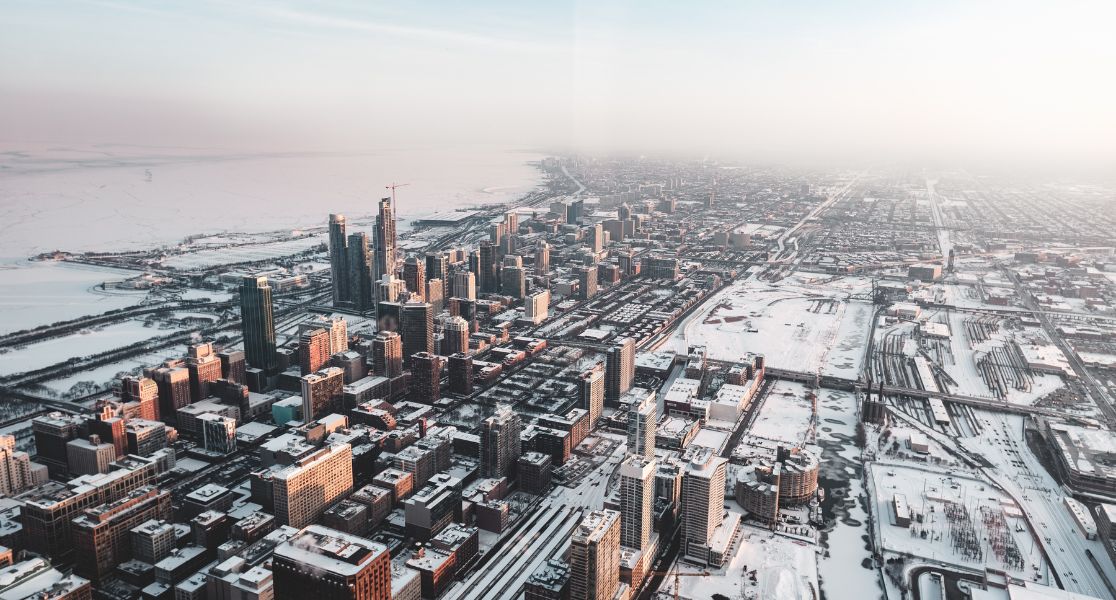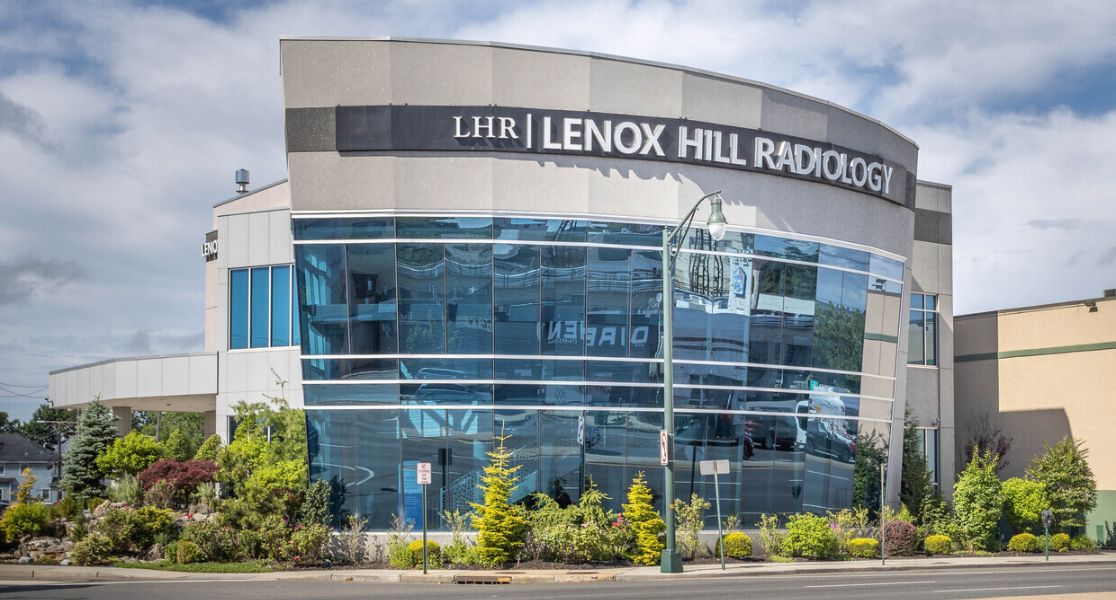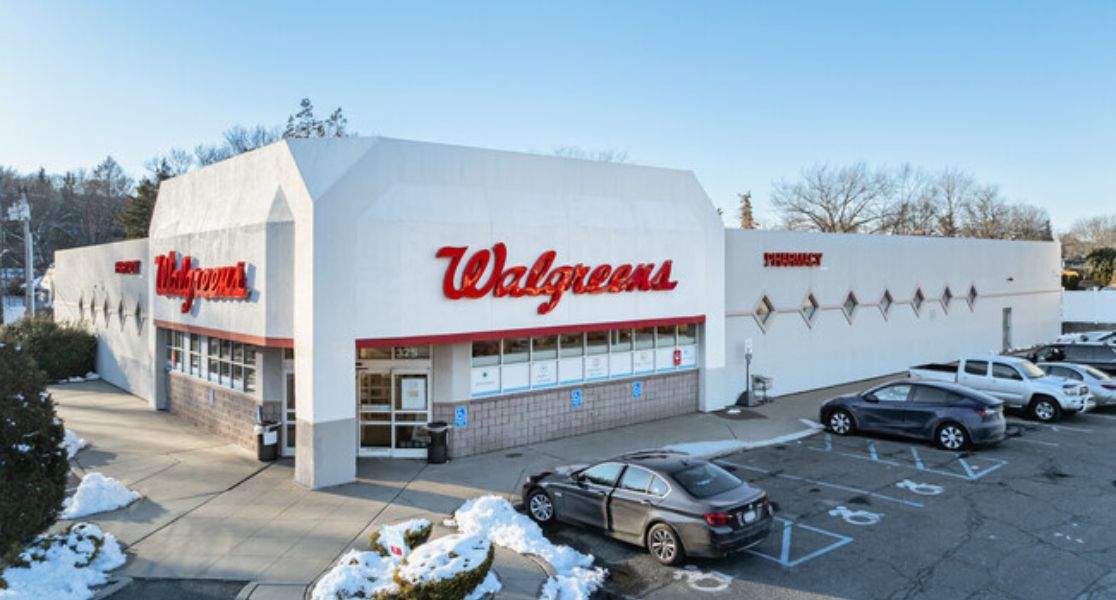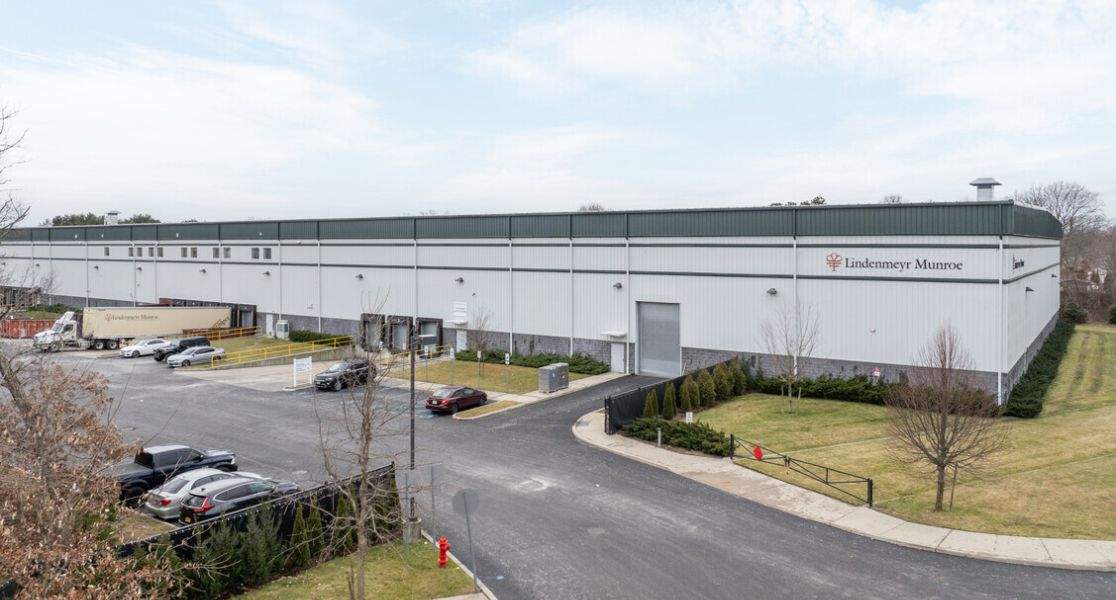
The winter season will soon be upon us with frigid temperatures and inclement weather to be expected. Prepare your commercial property for freezing temperatures by reviewing the HVAC system, plumbing, lighting, roofing, snow removal equipment, and more.
Here is a winter checklist to prepare your commercial property for the cold season ahead.
7-Step Winter Checklist For Your Commercial Property
The following checklist contains common items and factors commercial landlords should review. Use it as a guideline for you and your management team to ensure your property is winter ready.
1. Snow Removal Supplies
- Ensure You Have Snow Removal Supplies to Last Until Early Spring
- Inspect Your Equipment For Low Fluid or Old/Damaged Parts
The first step to being winter ready is to do an inventory check of your snow removal supplies. You want to ensure you have enough supplies to last until early Spring. It is important to have adequate salt and sand for the snow, and gas or oil for the snow removal machinery.
Perform an inspection of your equipment such as snow blowers and plows. It is common for parts to become worn, or fluids to be depleted.
2. Snow Removal & Cleaning Contracts
- Considering Hiring Snow Removal & Cleaning services
- Visit Sites Like Angie’s List or Google For Contractors Near You
- Check Your Existing Landscaper For Snow Removal Services
As a landlord, you are often too busy to handle snow removal yourself. Consider hiring a contractor. There are many cleaning services and vendors on the market. Sites like Angie’s List or Google, are great for finding companies near you.
If you already have an existing contract with a landscaper, review the terms of the contract. It’s important to know if your current landscaper will cover snow removal.
Here’s what you should know about snow removal contracts.
3. Ensure Building is Customer-Ready For Winter
- Remove Snow From Entrances, Hallways, and Walkways
- Invest in Quality Floor Mats & Slip Resistant Flooring
- Assess All Exterior Lighting. Ensure The Property is Well Lit
Snow removal is important to not only keep your property safe but to keep it welcoming. Having a clean property is inviting for your tenants and customers.
Besides clean entrances and hallways, it’s worth investing in slip-resistant flooring and quality floor mats. There are various types of flooring that are inherently slip-resistant.
Lighting is always an important part of keeping your property safe. In the winter season, it’s even more crucial. During the winter there are more business hours of operation during dusk or night. Investing in automatic lights with sensors that turn on during dusk is a great solution to provide adequate lighting.
4. Heating, Ventilation & Air Conditioning (HVAC)
- Replace Air Filters Routinely
- Clean Air Vents & Watch Air Flow
- Calibrate Thermostats
- Check for Abnormal Sounds and Odors
- Check for Cracks and Inefficiencies
- Check for Cracks in Building Structure
- Inspect Blowers & Hoses for Blockages
Your HVAC system should always be checked, but inspection in the winter is equally as important.
Pay attention to any abnormal sounds or odors coming from your HVAC system, this can signal damaged or failing components. Replace your air filters at the right intervals. Air filters are typically replaced every 3 months. Depending on your building’s purpose that interval is different.
For example, retail strip centers and strip malls should change air filters every 3 to 4 months. Restaurants need a filter change every 4 to 8 weeks. Industrial facilities will need an air filter change quicker depending on its use.
Other things to inspect are cracks in the system, blockages in the blowers and hoses, air vents and airflow, and the thermostat system.
While inspecting the HVAC system for cracks or leaks, it’s important to look for exposed areas in the building structure, too.
This includes windows and doors. Leaks in the building’s structure will allow warm air to escape, and cool air to seep in. Consider replacing the components or insulating them to contain the building’s temperature.
5. Plumbing
- Ensure Heat Stays Above 45-55 Degrees
- Check Exposed & Interior Pipes for Signs of Freezing
- Insulate and Seal Cracks and Openings Around Exposed Pipes
- Inspect for Signs of Excessive Moisture
The best way to protect plumbing during the winter is to make sure the interior building temperature stays above 45 degrees Fahrenheit.
If plumbing goes below freezing temperatures the pipes can crack and leak water, which will then need repairing.
For exposed pipes that are outside of your building, it’s important to inspect them for cracks or openings. Insulate and seal them from the weather to prevent broken pipes.
6. Roofing
- Clean the Roof of High-Piling Snow
- Inspect the Roof for Loose Shingles & Damage Caused by Ice/High Winds
- Keep Gutters Clear to Reduce Ice Buildup
Inspect the roof for loose shingles or other damage that might have occurred from high winds or ice. Ensure gutters are clear from the buildup of leaves or other debris, to allow melted snow to run off.
If your property receives a large amount of snow, it is best to clean high-piling snow off the rooftop.
7. Prevent Power Outages
- Inspect the Condition of Trees & Power Lines
- Invest in Backup Generators and Proper Machine Shutdown Procedures for Blackouts
- Encourage Tenants to Backup Data Off-line or on Cloud Software
Power outages are never fun and always inconvenient. During the winter season, you want to prevent power outages and prepare for outages you can’t control.
For properties with trees, power lines, or telephone poles, it’s important to inspect for weak structures. A weak tree limb can fall on people or property, or fall on a power line or telephone pole.
For office buildings, medical labs, or other places with sensitive data or items it’s beneficial to invest in backup generators.
Sign Up For Our Newsletter
If you found this article insightful, please feel free to share it with your audience. Share links are available below for your convenience.
Sign up for our monthly newsletter to receive the latest commercial real estate updates.






